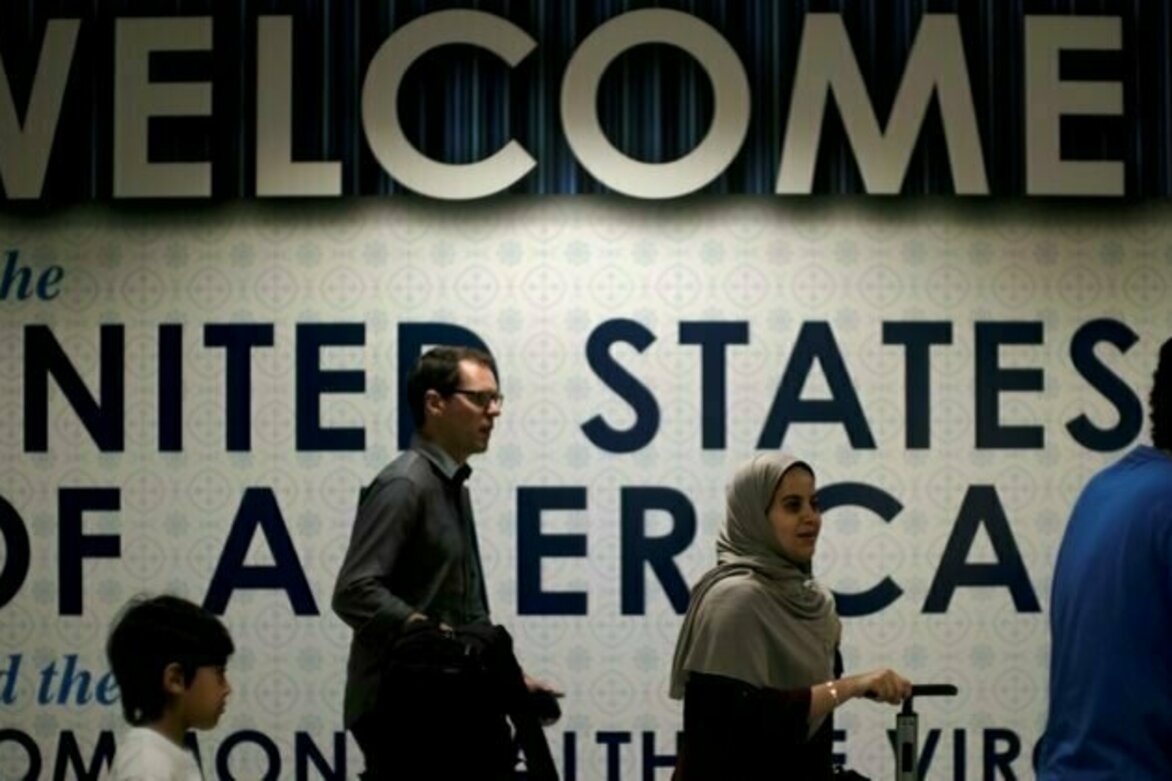Trump Announces Travel Ban Affecting 12 Countries From June 9
RFE
05 Jun 2025

US President Donald Trump on June 4 signed a proclamation resurrecting the travel ban from his first term, ordering that from next week citizens of 12 countries, including Afghanistan and Iran, will not be allowed to enter the United States.
I must act to protect the national security and national interest of the United States and its people, Trump said in hisproclamation.
In addition to Afghanistan and Iran, the countries on the travel ban are Burma, Chad, Republic of Congo, Equatorial Guinea, Eritrea, Haiti, Libya, Somalia, Sudan, and Yemen.
The ban takes effect at 12:01 a.m. Washington time on June 9.
Trump said he remains "committed to engaging with those countries willing to cooperate to improve information-sharing and identity-management procedures, and to address both terrorism-related and public-safety risks."
In addition to the ban, there will be heightened restrictions on visitors from Burundi, Cuba, Laos, Sierra Leone, Togo, Turkmenistan, and Venezuela.
SEE ALSO:
U.S. Supreme Court Backs Trump On Travel Ban
An executive order issued during his first term banned travel to the United States by citizens of seven predominantly Muslim countries -- Iraq, Syria, Iran, Sudan, Libya, Somalia, and Yemen. It resulted in chaos and confusion at airports in those countries and at US airports as travelers were either barred from getting on their flights to the United States or detained once they arrived.
The travelers affected included students and faculty as well as businesspeople, tourists, and people visiting friends and loved ones.
Trump said his move to restrict the entry of foreign nationals into the United States during his first term in office "successfully prevented national security threats from reaching our borders."
The new travel ban follows an executive order Trump issued in January requiring the departments of State and Homeland Security and the Director of National Intelligence to compile a report on hostile attitudes toward the United States. The executive order also asked for an assessment of whether entry from certain countries represented a national security risk.
The first order, which took effect soon after Trump took office in January 2017, was revised amid legal challenges until a version was upheld by the Supreme Court in 2018.
Trump defended the initial ban on national security grounds, arguing it was not based on anti-Muslim bias.
With reporting by AP